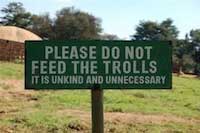Plastics Makers and Recycling Stakeholders Partner
Post# of 43068

The campaign is part of the Wrap Recycling Action Program (WRAP), a public-private partnership that promotes recycling of plastic wraps and bags.
By Jessica DavisDec 07, 2017
The Flexible Film Recycling Group (FFRG) of the American Chemistry Council (ACC) joined partners in Omaha, Nebraska, last weekend to launch a new campaign to increase the recycling of plastic wraps and bags in the city. The campaign is part of the Wrap Recycling Action Program (WRAP), a public-private partnership that promotes recycling of plastic wraps and bags.
Representatives from the FFRG, the U.S. Environmental Protection Agency, and First Star Fiber material recovery facility (MRF) were in attendance to educate consumers about the campaign and encourage them to recycle plastic materials at participating retail and grocery stores. The goal is to help the city divert more plastics from landfills.
The WRAP launch coincided with a promotional event for the Hefty Energy Bag Program, which allows consumers to separate their non-recycled plastics from their waste so that the plastics can be collected at the MRF and converted into fuel. The city has participated in the Energy Bag Program for more than a year.
“We’re thrilled to work with our partners in Omaha to educate consumers about recycling plastic wraps and bags,” said Shari Jackson, director of film recycling for ACC. “Recycling plastic wraps and bags at retail drop-off locations instead of through curbside collection programs helps ensure that this material does not damage equipment at the local MRF. Moreover, recycling plastic wraps and bags at grocery and retail locations helps keep the material clean and dry, which is critical to maintaining quality for recycling.”
People in Omaha and nationwide can recycle the following clean and dry plastics at participating stores: plastic bags such grocery bags, produce bags, bread bags, dry cleaning bags, newspaper bags, and food storage bags (even sealable food bags and bags with “zippers”); plastic wraps from beverage cases, diapers, bathroom tissue, and paper towels; bubble wrap and shipping pillows. Residents can recycle any thin, flexible plastic wrap labeled with a #2, #4, or the How2Recycle™ store drop-off label.
These materials can then be recycled into new products such as new bags and packaging or durable lumber that can be used for backyard decks, fences, and benches.
About the Author
Jessica Davis is the Associate Content Editor for 1105 Media.
https://eponline.com/articles/2017/12/07/plas...ogram.aspx
 (2)
(2) (0)
(0)